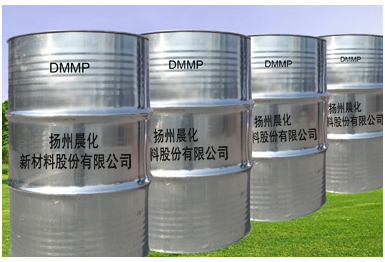Zhou Zhengmao, Secretary General of China flame retardant society, said that vecap is an environmental management plan to reduce the emission of pollution in the entire flame retardant supply chain, which has achieved significant emission reduction results in Europe and North America over the past few years. China flame retardant society plans to cooperate with BSEF to introduce vecap into China's flame retardant industry, encourage and guide Chinese flame retardant enterprises and their related downstream users to actively reduce the release of flame retardant to the environment in the process of production and use, and contribute to the sustainable development and competitiveness of the industry. Zhou Zhengmao also revealed that CFPA is in communication and consultation with relevant enterprises, and will organize relevant leaders and experts of the Ministry of environmental protection to visit the enterprise, and plans to launch specific implementation plans in the near future.

According to Daniel goosens, head of product management group of European flame retardant Association, the success of vecap lies in that it adopts innovative and excellent driving methods to carry out business, properly handle and dispose chemicals according to ISO 14001 principle, and effectively reduce potential release through management of chemical release in all links of industrial chain. She said that she highly supports and appreciates the efforts made by China's flame retardant industry to reduce potential emissions of flame retardants, which helps Chinese flame retardant enterprises to enhance social responsibility and build a good social image. European flame retardant Association will send experts to China to provide necessary technical guidance for enterprises.
The relevant heads of the Ministry of environmental protection and the Ministry of industry and information technology also said that vecap has a positive role in promoting the implementation of Stockholm Convention, improving the natural environment, improving the level of cleaner production and energy conservation and emission reduction in China. They are very supportive of and encourage the voluntary emission reduction in the flame retardant industry. They also hope that more industries and enterprises can join in the voluntary emission reduction from the source Control the release of chemical pollutants, so as to improve the social image and competitiveness of the chemical industry.
Halogen containing flame retardants refer to Flame Retardants Containing Cl, Br, F and other elements. Halogen free flame retardants include phosphorus series flame retardants, inorganic flame retardants such as magnesium hydroxide, aluminum hydroxide, zinc borate, etc. in addition, halogen-free flame retardants also include intumescent flame retardants and some special purpose flame retardants.
Halogen containing flame retardant is a kind of flame retardant product which is widely used in plastic and rubber materials at present. It is mainly an organic flame retardant with inert chemical properties, good compatibility with plastics, good flame retardant effect and low use cost. Many features are irreplaceable by other flame retardants.
According to the Rosh directive of the European Union, octabromodiphenyl ether and pentabromodiphenyl ether in halogenated flame retardants are burned to produce dioxins (carcinogens), which are listed in the catalogue of prohibited use. Decabromodiphenyl ether is also considered as a non recommended flame retardant due to controversy.
However, most of the halogen-containing flame retardants have not been completely banned. In fact, it is difficult to find a product that can completely replace them.
As for the harm and sometimes alarmism, there is no restriction on the use of decabromodiphenyl ether flame retardant in China. Its harm is not as terrible as the legend, and the fire retardant's harm to nature is insignificant compared with human's